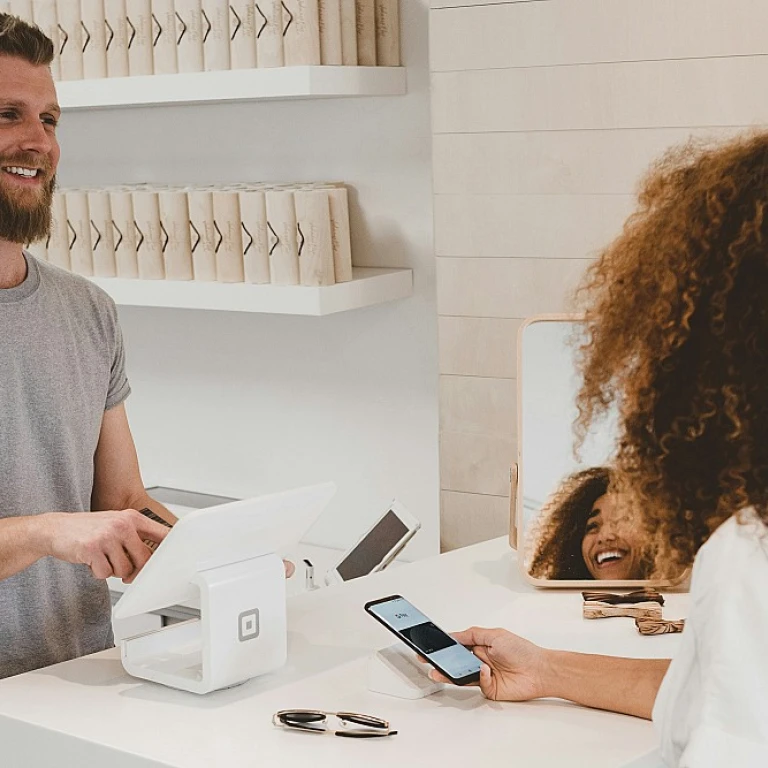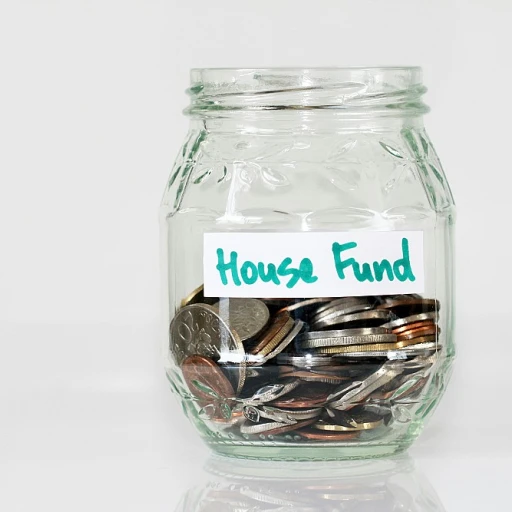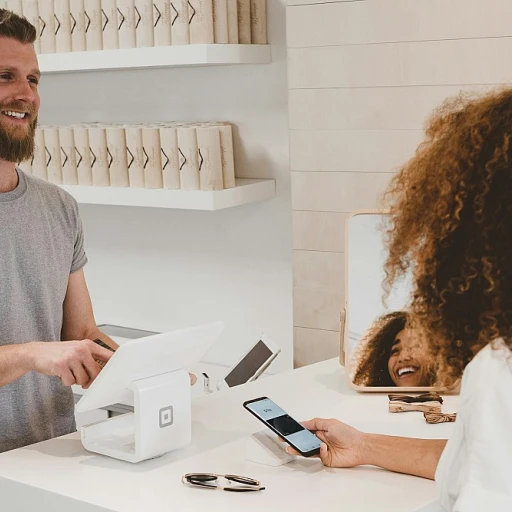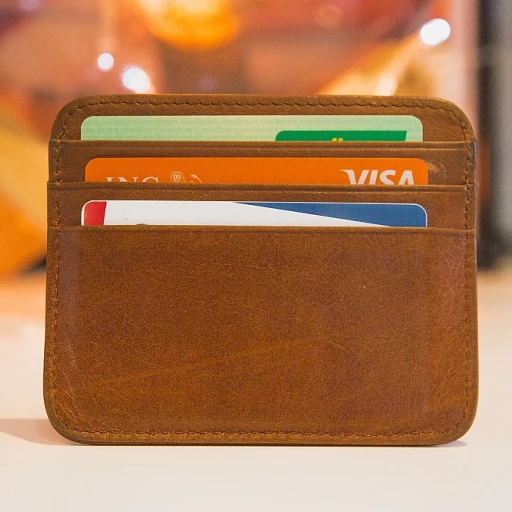Green Dreams to Business Schemes: Translating Eco Ideals into Action
Turning Green Goals into Sustainable Business Milestones
Now here's a truth bomb for ya - it ain't just about tree-hugging and saving polar bears anymore, businesses are getting wise to the fact that green dreams can fuel their growth engines. We're talking sustainability, sure, but that's just part of the big picture. Companies that weave in ESG considerations into their ethos are the ones scaling the heights of their industries.
Think about the folks who go shopping. They're on the lookout for labels that scream 'green', 'eco-friendly', or 'sustainably made'. It's not just a fad; it's a shift in consumer consciousness. Small businesses to global players are hopping on the bandwagon, and they're not doing it just to look pretty. Sustainability is tying up with the financial threads of business strategy and for a good reason.
Implementing sustainable business practices cuts through layers of complexity like a hot knife through butter. Energy efficiency? Check. Reduced waste? You bet. And the crown jewel, operating costs take a nosedive, making your finance team do a victory dance. But it ain't a walk in the park; it takes some serious elbow grease to plant these eco-friendly seeds and watch 'em grow.
And let's be real here, customers are smart. They smell greenwashing from a mile away, and they ain't fans. That's why the savvy business-brains are tying the knot between sustainability and their company's mission statement - making it real, authentic, and - drumroll, please - profitable.
But hey, it's not just about the green, it's about the how - the practices that put those eco-pedals to the metal. This is where the rubber meets the road, transforming those green dreams into everyday reality, from boardroom brainstorming to the nitty-gritty of daily operations. It's a game-changer, folks. The green business model isn't just a shiny badge - it's becoming the engine driving business growth. So, ready to roll up your sleeves and turn those green dreams into thriving, high-powering business schemes? Cause that's where the future is headed, no looking back.
Sustainable Business: A Closer Look at Triple Bottom Line
Unpacking the Triple Bottom Line
Now, take a cozy seat as we unravel the snugly-wrapped package that is the Triple Bottom Line (TBL). Think of it as the eco-savvy businessman's favorite triple-scoop treat, but instead of calories, it's loaded with conscience. The folks at the Harvard Business School have been preaching this like gospel, and it's no wonder businesses are catching on. TBL asks companies to commit not just to the green-stuff (dollars, that is), but also to Mother Earth (environmental responsibility) and society's well-being (social accountability).
Profit, People, and the Planet
It's like a balancing act, really. Imagine a stool with three legs—wobbly if one's missing, right? In the TBL world, these legs are profit, people, and the planet. A sustainable business model must give each leg the same TLC. We're not just talking about avoiding harm but also doing some good. It's a bit like being a superhero whose superpower is, let's say, planting trees with one hand while handing out fair paychecks with the other.
Numbers That Nurture
Sustainability business isn't just a warm fuzzy feeling; it's got the numbers to make any number-cruncher swoon. Embarking on this journey might have you digging into environmental social governance (ESG) metrics, or perhaps counting beans, erm, carbon footprints, to ensure your company isn't stepping too heavily on our blue dot called Earth. A recent Bloomberg Intelligence report whispers sweet statistics about companies with solid ESG performance rocking steadier returns. Now that's number nirvana!
Can Small Business Swing It?
Pssst, you don't have to be a Unilever-grade giant to play ball. Small businesses are equally in the game, with heaps of upside to boot. They're nimble, they're local, and they sure as heck can pivot with the grace of a sustainability ballerina. Give a shout-out to the coffee shop around the corner that composts its grinds or the boutique that sources clothes with a conscience. They’ve got their TBL down pat, cultivating a loyal tribe of customers who dig their digs and their ethos.
Storytime: True Corporate Tales
Ever heard the one about Patagonia? They’re the rock stars of corporate sustainability, working environmental social breadcrumbs into every jacket stitch and board short seam. With Mother Earth in their mission statement, they've sparked a flame in the heart of every outdoor lover who wants to enjoy the world without trashing it. And then there's homegrown heroes opting for renewable energy sources over the fossil fuel fiends, sending a powerful message to the energy sector that it's time for change.
The Ripple Effect: Sustainability Impacting Supply Chains
Supply Chain Sustainability's Far-Reaching Impact
Let's consider the intricate tapestry of modern supply chains, where every thread weaves through the fabric of sustainability. It's a space where sustainable businesses are not islands but rather interconnected hubs in a vast network. Harness the power of sustainability, and you create ripples that can transform entire supply chains. By adopting green logistics and ethical sourcing, companies send a powerful signal to suppliers: adapt to sustainable practices, or risk losing business.
Case Studies in Sustainable Transformation
Globally minded companies like Unilever and Patagonia lead the pack, pushing for transparency and sustainability in their supply chains. Unilever's dedication to reducing emissions extends to the smallest of suppliers, proving that size doesn't dictate the ability to make substantial changes. Patagonia leaves no stone unturned, supporting grassroots activists who align with its mission statement committed to environmental social governance (ESG).
Measurable Success in Green Supply Chain Initiatives
But does all this effort translate to tangible benefits? You bet it does. Sustainable supply chains often see improved efficiency and reduced waste, which, yes, saves energy and resources. But here's the kicker – it also saves green as in cash. Bloomberg Intelligence reports that companies with robust ESG profiles outperform their less sustainable brethren, highlighting the bottom-line benefits of sustainable practices.
And on that note, for any business or investor looking to delve deeper into investment dynamics, particularly in the realm of early versus late-stage tactics that prioritize ESG, let me point you in the direction of a comprehensive guide that could set you on the path to impactful investing. Take a gander at this masterful resource for a dive into the investing strategies that can make or break the future of sustainability-driven companies.
From Chain Links to a Tightly-Knit Tapestry
All in all, weaving sustainable strategies into the supply chain isn't just good form; it's smart business. Singapore's foray into high-tech, eco-friendly urban solutions demonstrates how small business and big players alike can bring about change. And it's catching on – Harvard Business School Online reveals that consumers are increasingly evaluating companies based on their supply chain sustainability. So, the question isn't if you'll adapt to sustainable supply chain practices, but rather how quickly you can integrate these essential changes to keep up with the global tide.
Clean and Green Energy Initiatives within Industry Giants
The Charge of Champions: Big Players’ Energy Makeover
Who’s leading the charge in the shift to sustainable energy? Let’s talk about industry giants who are turning over a new leaf and sourcing power from the sun, wind, and other renewable treasures. Companies like Unilever and Patagonia don’t just talk a big game—they’re in it to win it, pushing the boundaries of what’s possible in renewable energy sources and green tech.
The Wind Beneath Corporate Wings
Did you know some businesses are literally catching the breeze? Yup, wind energy is blowing up big time. Giants in the sector have hooked themselves up to vast wind farms, snatching that clean, green energy right from the air to power their operations—and boy, does it show in their reduced carbon footprints.
Here Comes the Sun
And it’s not just the winds of change—solar energy is sparking bright ideas across boardrooms. Companies have been slapping solar panels on roofs faster than you can say “killawatt.” This switch to the sun is flipping the script on emissions and costs, proving that what’s good for the planet is great for the bottom line, too.
Getting Into Hot Water
Green energy isn’t just about electricity. Plenty of savvy outfits are upgrading their facilities with eco-friendly tech like geothermal heating and cooling systems. It slashes energy costs, reduces emissions, and is basically like giving Mother Earth a big ol’ bear hug.
Ain’t No Power Like Hydro Power
Water’s not just for quenching thirst; it’s powering some of the biggest players in the field. Hydroelectric projects are surging, and businesses tapping into this energy are riding the wave toward a cleaner and more sustainable future.
A Connected Effort: Smarter Power Grids and the IoT
Ever heard of smart grids? Well, these high-tech wonders help companies manage their juice like never before. By hitching their operations to smart grids and integrating the Internet of Things (IoT), big names are optimizing energy use. Mark my words, this is revolutionizing how they handle the highs and lows of energy demands.
The Consumer Crusade: Leveraging Customer Demand for Sustainability
Tapping into the Green Consumer Movement
Now more than ever, Joe and Jane Public are eco-savvy. Armed with apps and blogs, they're hot on the trail of brands that walk the walk, not just talk the talk. Consumers are ready to throw their weight (and wallets) behind companies that are serious about sustainability. Picture all those checkout lines where folks reach for products with a promise - a promise of sustainable sourcing, renewable use of energy, and reduced environmental impact. Sustainable business isn't just a nice-to-have; it's what customers are demanding, making it a linchpin of a contemporary business strategy.
Stories that Stick: Customers Identifying with Brands
It's clear as day – customers love a good story, especially one that's real and relatable. Brands like Patagonia are ace at this, sharing tales of sustainable deeds in every tag, tweet, and testimonial. It fits like a glove for them – weaving a company's mission statement with the fabric of sustainability to create a narrative that resonates with folks. When you pluck the right heartstrings, showing your customers that what's good for the earth is good for them too, you've got 'em. And it's this kind of smart, sincere marketing that turns one-time buyers into lifelong fans.
Shifting Supply Chains Through Conscious Consumerism
Let's not kid ourselves; those customer cravings for green goods are sending shockwaves up the supply chain. Suppliers and retailers are feeling the heat to switch gears, courtesy of the folks with the shopping carts. Businesses are getting hip to the idea that sustainability sells, leading them to rethink everything from packaging peanuts to power sources. And hey, if it means cleaner clouds and fuller forests – plus a bump in sales – it's a win-win. Social responsibility isn't just on-trend; it's driving the trend, shaping how companies operate as they aim to satisfy the new king of the hill: the eco-conscious consumer.
When More Is Less: Reducing to Boost Brand Appeal
Reduction is the new addition when it comes to curating customer loyalty. Forward-thinking businesses are minimalizing their footprint while maximizing appeal. We're talking reducing waste, slashing energy use, and even cutting back on the corporate jargon. Simple, clear, and earth-friendly is the mantra for businesses vying for consumer affection. Nowadays, the less a company takes from the planet, the more they stand to gain in market share. And it’s an easy story to tell – customers eat up the authenticity of businesses that do more with less.
Winning Hearts with Wallets-Friendly Green Options
Green doesn't have to mean expensive. Innovative small businesses to mega corporations like Unilever are proving you can have your cake and eat it too – eco-friendly products at prices that don’t break the piggy bank. With strategic sourcing and some clever changes, companies are finding ways to offer cost-effective sustainable options, and customers are lapping it up. Offer folks a product that’s kinder to their wallet and the world, and you've got a loyal following that'll spread the word faster than you can say 'sustainable.'
Closing the Loop: Waste Reduction and Circular Economy
Revolutionizing Resource Use: Embracing the Circular Economy
Talk about a game-changer - when companies start seeing what some call trash as a treasure trove of resources, that's when the magic happens. The circular economy is not just some buzzword; it's a transformative approach that's all about making sure nothing goes to waste - like nature's own recycling system. It's a bold move from the old-school 'take, make, dispose' model to one where materials are kept in use for as long as possible. And guess what? This isn't just good for the planet – it makes solid business sense too.
Businesses around the world are getting clever with waste. They're designing products from the get-go to be reused or reborn into something new at the end of their life cycle. It's about getting the most bang for your buck out of every material used. This waste not, want not philosophy can drastically cut costs and give any business an edge with eco-conscious customers. They're the ones looking to support green businesses that walk the walk.
Turning Scraps into Strategy: Innovative Waste Reduction Practices
Imagine taking the scraps from your production line and turning them into your next best seller. That's the kind of innovative thinking happening in boardrooms and production plants. Companies are partnering up for some pretty clever collaborations, sending off their by-products to buddy businesses that can put them to good use. It's about creating a network where one company's leftovers can help another reduce their input costs. There's a certain beauty to it!
And here's something cool - some businesses aren't just focusing on their own stuff. They're reaching out into the world, scooping up ocean plastic and giving it a new lease on life. It’s a win-win, cleaning up our waters and churning out products that folks love, all while taking a stand against environmental baddies like plastic pollution.
Connecting with Customers through Conscious Choices
Let's not forget the folks who make it all happen - the customers. Nowadays, people want to feel good about where their greenbacks are going. They’re more likely to stick with brands that prove they’re all about reducing waste and embracing sustainability. So businesses are getting smarter, sharing stories about how they’re keeping products and materials out of the landfill.
Whether it's a shoe brand stitching sneakers from recycled materials or a coffee shop ditching single-use cups, these green choices resonate with customers. It's a powerful way to build brand loyalty and an emotional connection that goes way beyond the hard sell.
Measuring Success in Sustainability Circles
Sure, all this talk about going round in circles - sustainability circles, that is - sounds great, but how do you know it's actually making a difference? Easy. Companies are crunching the numbers, measuring how much they save in materials, costs, and emissions. It’s like keeping a scorecard for the planet, showing not just what they're doing, but how it adds up to real, positive change.
And this isn't just about patting themselves on the back. Sharing these achievements with the world can make a company stand out in a crowded market. It’s all about transparency and trust, two things that are gold dust when it comes to building solid customer relationships.
From Words to Action: Building Credibility through Corporate Social Responsibility
Walking the Talk with Corporate Social Responsibility
When a business steps up its game to emit trust and authenticity, customers sit up and listen. Let's face it, folks are getting smarter and can spot a poser a mile away. They want to see businesses not just yakking about doing good but actually rolling up their sleeves and getting their hands dirty.
Corporate social responsibility (CSR) ain't just a flashy badge for companies to wear. It's the real McCoy for showing the world you mean business—socially and ethically. For instance, Patagonia isn't playin' when they say they're in it for Mother Earth. They mend clothes to keep 'em outta the dump and donate their dough to environmental causes. That's walking the walk, my friends.
Case Studies: The Big Guys Setting the Pace
But it's not just the niche players in the game. Heavy hitters like Unilever are switching gears towards greener pastures, making CSR the backbone of their operations. Their pledge to reduce plastic waste ain't just talk; they're trimming down the packaging and switching to sustainable materials that make a real dent in the environmental toll.
And the numbers talk, folks—according to Bloomberg Intelligence, companies that ride the CSR wave have seen a spike in market share and customer loyalty. It's a win-win, with businesses bolstering their rep and doing right by the planet. Sustainability is more than a buzzword; it's good for the wallet too.
Making it Real: Implementing CSR in Your Business
Starting your own CSR can feel like a doozy, but small steps lead to big leaps. Begin with what matters to your business and community. Maybe it's sponsoring local events, using renewable energy, or ensuring your supply chain respects workers' rights. Simple changes, big impact.
And remember, it's not just about grand gestures. Consistency is king. Regular updates on your website or a blog spot about your efforts will keep folks in the know and show them you're serious. It's not enough to say you're eco-friendly or socially conscious. Show it, prove it, make it part of your mission statement, and there you have it—a CSR strategy that speaks louder than words.
Counting Carbon and Cutting Costs: Conducting a Carbon Footprint Audit
Going Beyond Guesswork: Precision in Measuring Sustainability
You've heard the buzz around town: if you can't measure it, you can't manage it. And let's be real, when we talk sustainability, we're not just shooting in the dark. It's time for companies to roll up their sleeves and get down to the nitty-gritty of their carbon footprint. We're talking a full audit that lays it all out on the table.
Crunching Numbers for a Greener Tomorrow
Now, carbon footprint audits are like health check-ups for your business, only they're checking the pulse of the planet. It's the deep dive into your company's environmental vitals, from energy consumption right down to the little paperclips. Picture this: with every digit crunched, you're one step closer to not just meeting but smashing those climate goals. And guess what? It's not just Mother Earth tipping her hat to you, but your bottom line getting a sweet boost, too. Harvard Business School wasn't just whistling Dixie when their numbers showed sustainable practices could lead to better financial performance.
The Carrot Over the Stick: Incentives for Lower Emissions
Getting into the weeds of your carbon emissions pays off – literally. Governments and power players in the industry are doling out incentives like hotcakes for businesses that can show they're committed to cutting down their carbon shoe size. It's no longer a pat on the back for being green; it's tax breaks, rebates, and staying ahead in the sustainability business race.
Making It All Add Up: Transparency with Stakeholders
Let's not forget the folks who keep the ship sailing: the stakeholders. An audit's not just a report card for the company, it's a message to customers, investors, and that spunky new talent you want to attract that says 'hey, we mean business - green business.' And when Unilever says they're slashing carbon emissions left, right, and center, you can bet their customers sit up and take notice. People want in on a company that's as eco friendly as their reusable coffee cup. If you want that sustainable business model to really pop, it's all about transparency and trust – and a carbon audit is your golden ticket.
The Takeaway
As we wrap this up, remember it's more than a few less lights on in the office; it's about a holistic approach to sustainability. Getting into the numbers game of carbon auditing not only slashes costs and revs up efficiency, it's your brand's handshake with the future. You're not just running a business; you're stewarding the earth, and that's something you can take to the green bank.












